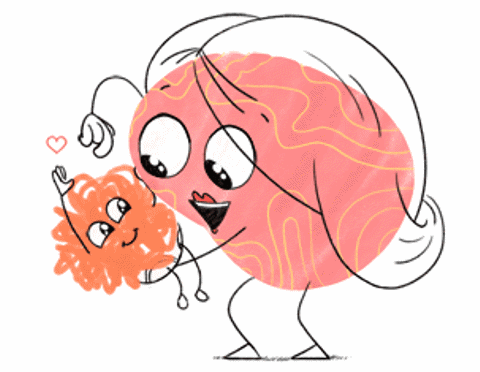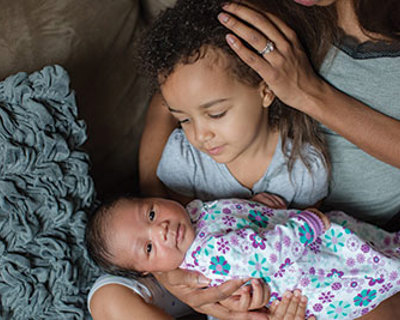The first few days of having your baby at home can be exciting, exhausting and nerve-racking, especially if it’s your first.
Often, new parents manage the first few days in a haze of adrenaline and sleep deprivation, where joy and happiness are mixed in with apprehension and worry.
After the initial rush of visitors and appointments, the reality of looking after a newborn can take its toll, particularly if you’re a single parent or your partner has returned to work.
Finding support
If you’re lucky enough to have family and friends around, it’s really important to make use of their support to give you whatever you need: an hour for a bath or some sleep, company for appointments, help to get you out the house or a shoulder to cry on.
There are other supports available for everyone: use them too. If you don’t have much of a support network from friends and family, ask your health visitor to help you and recommend some local groups. In most areas there are a variety of different groups for new mums, babies and toddlers.
Local groups are a great way of connecting with other people in the same situation, and they give your baby stimulation and new experiences too.
Getting into a routine
It can be easier said than done, but one of the most important things you can do is to help your child settle into a routine. This may seem almost impossible at times – as babies often have their own ideas and make their feelings known!
Routine helps make your baby feel safe and secure. Knowing what is going to happen and that they will be responded to with love and consistency will have huge benefits for your baby as they begin their journey into the world.
Bonding with your baby
There is more and more understanding about the benefits of engaging and playing with our babies – from cuddles, to eye contact, from playing peek-a-boo to reading. Every interaction your baby has with you helps to build their brains – and these early experiences will shape how they grow, develop and cope throughout their life.


Amazing brains
Some tips to consider
If you’re okay then there’s a good chance your baby is too, but "it’s hard to pour from an empty cup". Don’t be afraid to call on the support available to you – whether family and friends, or by seeking other parents in the same situation through your health visitor, local community or through social media.
If you need support, please contact Children 1st Parentline. There's someone at the end of the line, 365 days a year. Our contact details are at the foot of this page.
Listen to advice – and then decide if it’s right for you and your baby. It might feel like relatives, social media and books are all telling you how to do it right. It might seem like everyone has an opinion. Remember, you’re in control of how much you listen to. Weigh up if it sounds sensible and realistic. Go with your gut and what will work for you.
Try to get into a routine as early as possible. It won’t be easy, you’ll want to give up but it is worth it – for you and your baby. It doesn’t have to work like clockwork every day. (Most babies don’t fit neatly into the patterns that some parenting authors suggest in their latest solutions for sleep, weaning and crying!)
There is no such thing as a perfect parent and all babies are unique. Finding a group with others in the same boat can help you chat through the highs and lows of life with a newborn baby.
Create a baby book or baby box
Having a new baby brings challenges, but it is also one of – if not the – most amazing things you can experience in your life. Childbirth is such a common event that sometimes it can be easy to forget how incredible it is, particularly when you are so busy looking after them.
Making a baby book or box is a great way of recording and remembering all those special moments which you can share with your child when they get older. There are many baby books available in shops, or you can make your own, or create a photo book online and get it delivered.
Think about all the things you might want to include:
- pictures of your new baby
- their tag from hospital
- details of their birthweight
- special stories or silly moments from their first year
- how you felt.
The possibilities are endless and entirely up to you. Your baby book can continue throughout your baby's early life for as long as you want.


